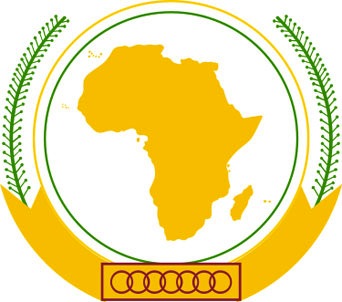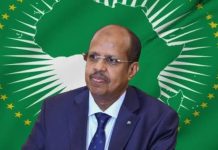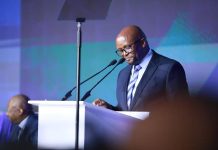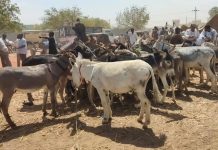Africa today celebrates the 57th anniversary of the founding of the continental body — the African Union — under difficult circumstances characterised by lockdowns and despair brought about by the outbreak of the novel coronavirus pandemic.
This pandemic has forced the continent to shift its attention to the fight against Covid-19.
Africa commemorates the day with a mixture of joy tainted with fear of this pandemic which has so far claimed the lives of nearly 3 000 people out of the more than 90 000 confirmed cases of coronavirus across the continent.
The African Union theme for 2020 is: “Silencing the guns: Creating Conducive Conditions for Africa’s Development,” — a quest to promote peace and security as a prerequisite for economic and social development.
But this time around, the biggest threat are not arms of war but a disease which is wreaking havoc without the firing of bullets and bombs. Covid–19 threats are real and Africa can lose up to 2,5 percent of its annual gross domestic product (GDP), equivalent to about $65,7 billion, for every month of lockdown imposed to control the novel coronavirus disease (Covid-19) spread, according to United Nations Economic Commission for Africa (UNECA) estimates.
Despite the threats, the continent must keep up its momentum for continental integration and meet the challenges that lie ahead.
Africa Day provides an opportunity to celebrate that African solidarity, African identity and a common humanity and destiny which is shared by the continent’s more than one billion people.
After more than five-and-half decades of the existence of the Organisation of African Unity (OAU, now AU), it is a time for reflection for this continent that is so strategically important to world economics.
Despite the onslaught of the coronavirus, the African spirit still lives on, unbowed by the divisive and dominant policies of powerful countries, which aim to exploit for next to nothing Africa’s economic resources.
In the terms — AFRICA DAY, The Herald shares some of the major highlights of events and processes driving change on this continent, home to more than one billion people.
A — for Africa
The origin of Africa’s name is an area of major contestation by etymologists. One school of thought suggests that “Afri” was the name of a people, maybe the Berbers of North Africa, given by the Romans while others say the addition of the Latin word aprica, meaning “sunny”, or the Greek word aphrike, meaning “without cold” would ultimately lead to the use of the term Africa.
Some historians or Egyptologists say the name Africa is of African origins from the Egyptian word “Afru-ika” or “Motherland”.
Other scholars suggest that the name Africa came into Western use through the Romans, who used the name Africa terra — “land of the Afri” referring to the northern part of the continent, as the province of Africa with its capital Carthage, in modern-day Tunisia.
The Roman suffix “-ca” denotes “country or land”. There are so many theories around the origins of the name and most historians say the actual etymology of Africa is uncertain. No one knows the exact origins but it has come to be acceptable on the continent and globally.
F — Founding fathers
Founding fathers who gathered together on May 25, 1963, in Addis Ababa to establish the OAU (now AU) had to come up with a united, independent and strong Africa. They dedicated their lives and worked tirelessly to liberate Africa from the shackles of colonialism. The OAU was established, first and foremost, with the express objective of working towards the greater unity of the African continent while at the same time ensuring that the remaining colonies on the African continent are assisted to achieve their freedom and independence.
The memory of the founding fathers should not got to waste.
The legacy of the likes of Dr Kwame Nkrumah of Ghana, Modibo Keita of Mali, Gamal Abdel Nasser of Egypt, Sekou Touré of Guinea, Julius Nyerere of Tanzania, Ben Bella of Algeria, Emperor Haile Selasse of Ethiopia, William Tubman of Liberia, Abubakar Tafawa Balewa of Nigeria, Nnamdi Azikiwe of Nigeria, Jomo Kenyatta of Kenya and many others who were part of the major driving forces for a common and shared vision for Africa must live on and never be downplayed.
Their vision inspired the pan-African movement and also influenced the transformation of the continental body in the years that followed. These founding fathers must continue to be part of our collective memory as the continent continues to celebrate their work and soldier on in achieving their dreams.
R — is for Resources
It is a fact that Africa has a large quantity of natural resources including oil, diamonds, gold, platinum, iron, cobalt, uranium, copper, bauxite, silver, petroleum and a whole range of plant genetic resources. Much of its natural resources are undiscovered and have not been harnessed. Africa is the prime target of most industrial nations who want to exploit its resources. The vexing question still stands even today — Just how can African countries maximize development outcomes derived from natural resources? How can African countries achieve inclusive and sustained growth from natural resources?
There are no easy answers to this. Critics still argue that, despite the abundance of natural resources, the bulk of resources exploited from Africa is causing most of the value and money from the natural resources to go to the West rather than the African. There has been uneven progress in improving health, education, and other social outcomes in most African countries despite the new natural resource discoveries — oil, minerals, and gas.
Efficient exploitation and utilisation of these resources should give Africans new sources of revenue for advancing human development and supporting self-sufficiency and economic empowerment. Despite commitments to directing new revenues from natural resources toward improving social outcomes as well as creating more and better jobs and business opportunities, most of the promises remain unfulfilled brining untold hardships and the unequal distribution of wealth.
The scourge of illicit financial flows (IFF) from the continent is milking the continent dry. Proceeds from Africa’s resources that could easily turn the continent into one of the most developed and industrialised continents in the world are being squirrelled away in billions depriving the majority of the poor of vital infrastructure, uninterrupted power supplies, jobs and a peaceful and stable socio-economic environment. Economists say while between 1980 and 2018, sub-Saharan Africa received nearly $2 trillion in foreign direct investment (FDI) and official development assistance (ODA), it lost more than $1 trillion in illicit financial flows under opaque circumstances.






